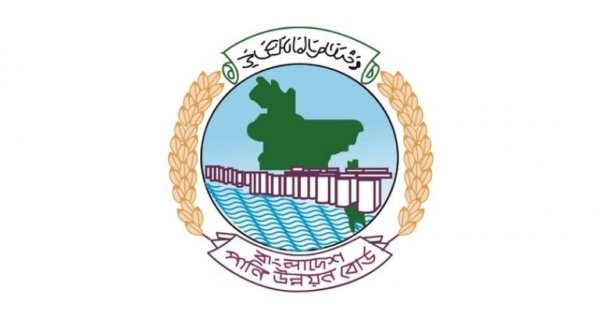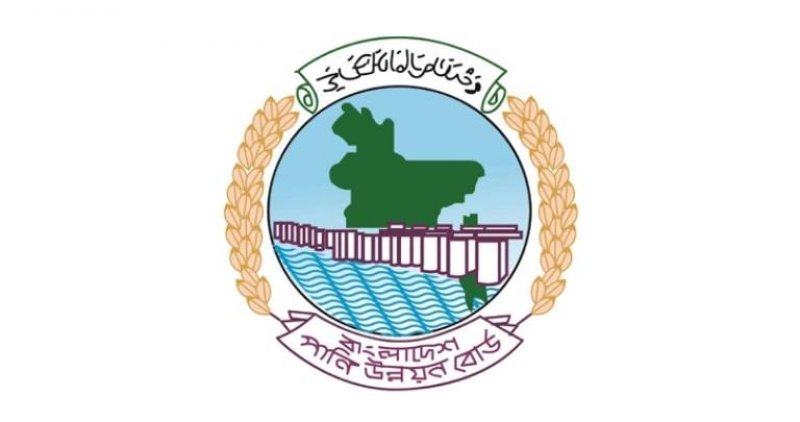
[ad_1]

The “Bangladesh Water Development Board”, which works for the proper management and sustainable development of the country’s water resources, will be abolished. The government is reorganizing the “Bangladesh Department of Water Resources” by abolishing the Bangladesh Water Development Board under the Ministry of Water Resources. At the same time, the “Bangladesh Water Development Board Act 2000” is repealed. The Bangladesh Department of Water Resources will be governed by different laws. To this end, a new law is being formulated called ‘Bangladesh Department of Water Resources Act-2020’. The Ministry of Water Resources has already finalized the main draft of the law. Work is now under way to finalize the details of the law. If all goes well, the work of transforming the Water Development Board into the Department of Water Resources will be completed by the end of this year. This information has been known from the sources of the Ministry of Water Resources.
It is known that after the catastrophic floods of 1954 and 1955, the East Pakistan Power and Water Development Authority (EPWAPDA) was formed in 1959 to manage and develop the region’s water resources on the recommendation of the Krug Mission, formed by the UN, to reduce food losses and increase food production. The current Bangladesh Water Development Board (BAPUBO) as the water wing of EPWAPDA has started activities as a major body in the management of water resources to increase the production of agricultural and fishery resources through the implementation of control projects of flooding, drainage and irrigation. After independence in 1972, according to Presidential Order No. 59, the water portion of EPWAPDA emerged as a fully autonomous body as the Bangladesh Water Development Board (BAPUBO) with the same mandate. Subsequently, the Bapaubo Law of 2000 was enacted in line with the National Water Policy of 1999 in a series of reforms and restructuring. Under this Law, the board’s main policy is determined and administered by a 13-member water council headed by the Minister of the Ministry of Water Resources.
According to the Water Development Board, the main vision of the Water Development Board is to ensure the proper management and sustainable development of the country’s water resources, but the main vision of the department formed under the new law is to guarantee sustainable development. and efficient management of water resources. At the same time, the department’s job will be to achieve sustainable development in the fields of agriculture, fisheries, forests, etc. through the proper management of floods, droughts, flooding, international river flows, salinity, adverse effects of climate change.
So far, the national water policy, the national water master plan, the participatory water management guideline, and the proper management and development of the country’s water resources have been carried out in accordance with the Bapaubo Law, but now these works They will be carried out in accordance with the Water Development Department Law 2020. The bill also establishes that medium and large projects will be executed through the joint management of local organizations.
The Bangladesh Department of Water Resources will work with 6 specific missions without significant differences. It is about: a) Guaranteeing the participation and improvement of the standard of living of people from all walks of life, classes and professions. (B) Establish good governance in project management through transparency, accountability and full application of the law. (C) Provide effective and efficient services to all classes and professions, especially the poor. (D) Poverty reduction. (E) Provide food security. (F) maintain the balance of the natural environment and (g) follow environmentally-friendly sustainable development strategies.
It is known that the Bangladesh Water Development Board Law-2000 will be repealed as soon as the ‘Bangladesh Water Resources Department Law-2020’ is passed in the National Assembly after going through several stages. At the same time, the Bangladesh Water Development Board will be abolished. Bangladesh Department of Water Resources will be formed. Section four of the new law establishes that the position of the official who acts as executive director of the Bangladesh Department of Water Resources will be that of Director General or Director General. Section 5 of the bill states that its headquarters will be in the capital, Dhaka.
Section 6 of the Bill establishes: “(1) In light of the National Water Policy and National Water Resources Plan formulated under the Bangladesh Water Law of 2013 (Law No. 14 of 2013) and subject to other provisions of this section, the Department will perform the following functions and will formulate the necessary projects. It can perform all activities related to implementation, management, maintenance and evaluation, e.g. Ex.
(A) The structural functions include: Management of rivers and hydrographic basins and their development and construction of reservoirs, dams, dams, regulators or any other infrastructure for flood management, drainage, irrigation and prevention of droughts. Re-excavation of waterways, canals, etc. to improve water flow and change the course of water flow to aid in irrigation, fish farming, shipping, conservation of aquatic and wild animals and general development of the environment. Apply natural methods in forestry and all fields. Construction of coastal dams. Protect places of historical and national importance, such as mosques, madrasas, hatbazar schools, university settlements, protecting and preserving the river banks.
Section 12 of the Act states that the implementation and management of future projects will be determined in light of the National Water Policy and National Water Resources Plan and Delta Plan-2100 under the Bangladesh Water Act-2013 and of in accordance with subregional and local water management plans.
When asked about this, Kabir Bin Anwar, senior secretary at the Ministry of Water Resources, said the law was on the way to being finalized. A little more work remains. We are working on this. Once it is complete, it will be sent to the cabinet for approval. After cabinet approval, the law will be sent to parliament for approval after investigation by the ministry of laws. With the passage of the law in the National Assembly, the Bangladesh Water Development Board will be dissolved and transformed into the Bangladesh Department of Water Resources.
[ad_2]